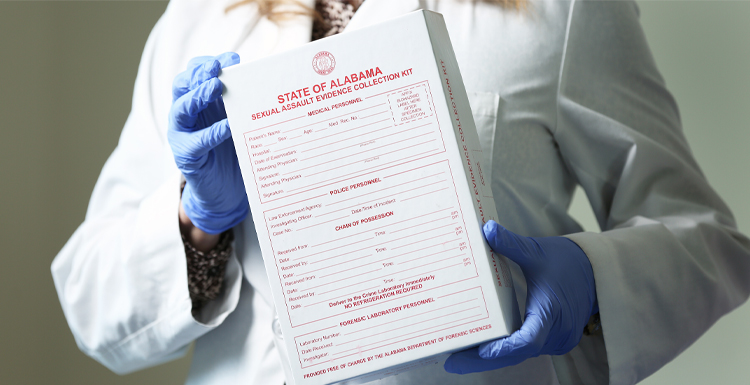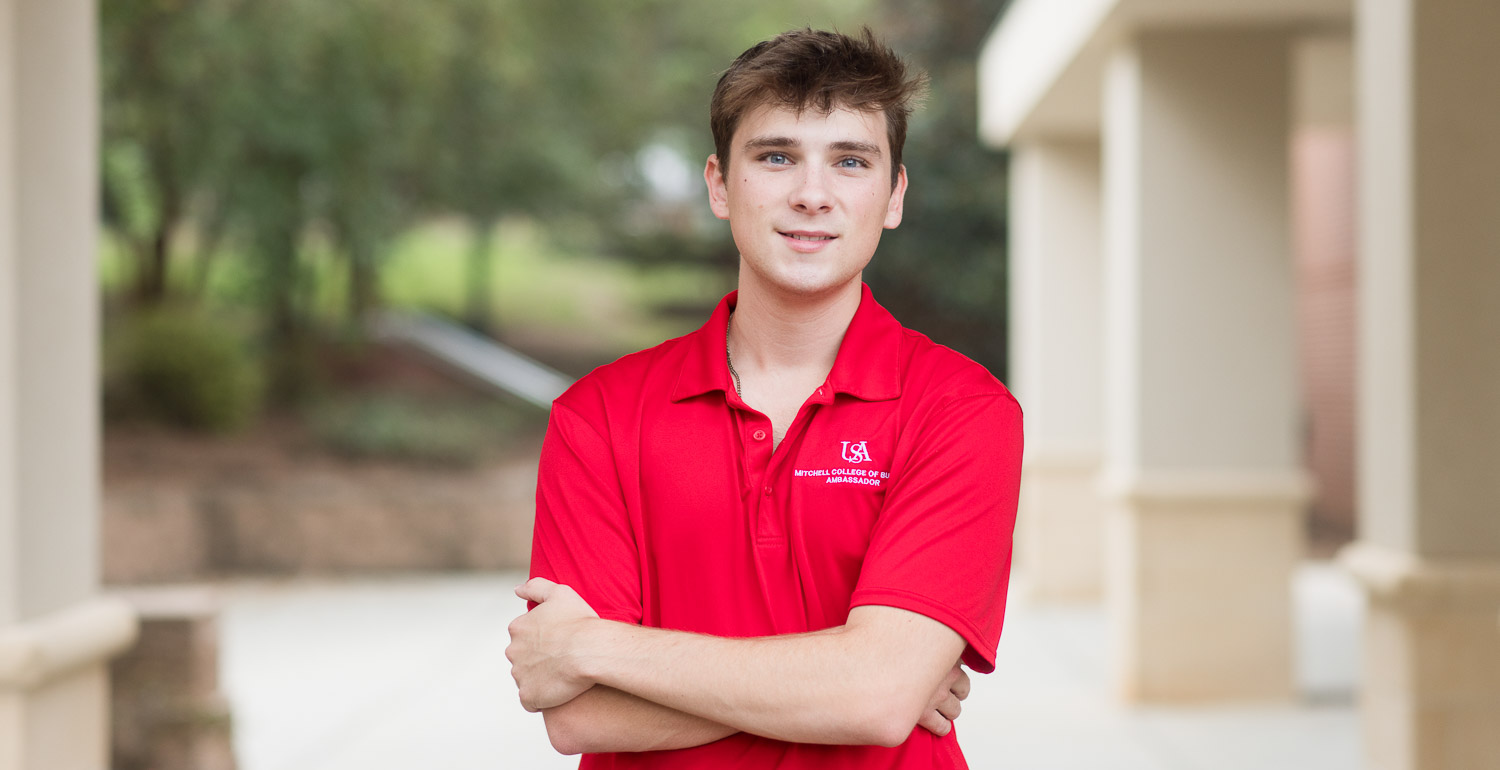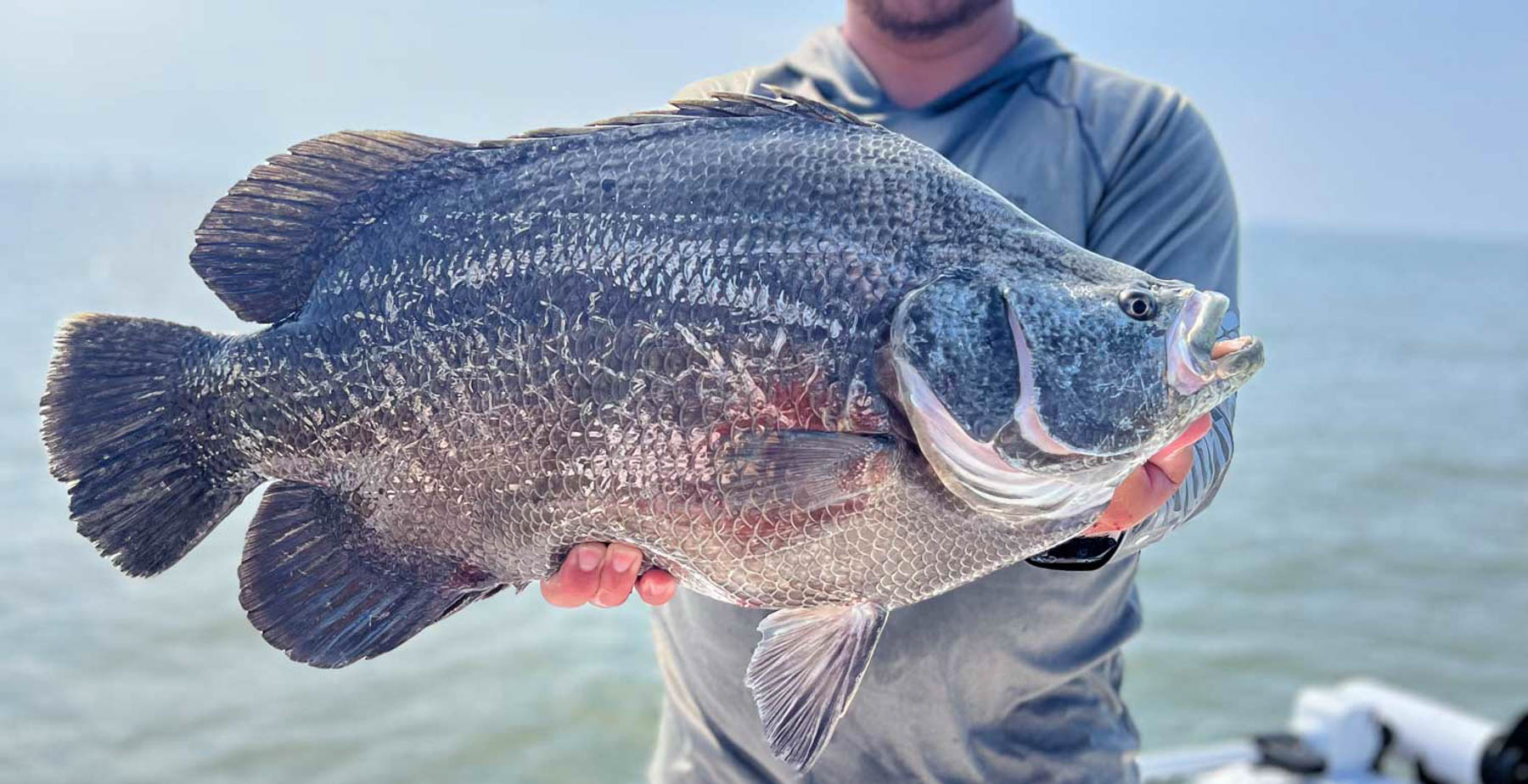More Federal Grants Fund South's Sexual Assault Nurse Examiners
Posted on March 17, 2022

The University of South Alabama College of Nursing has received two federal grant awards that will continue and expand its efforts to train nurses as sexual assault examiners.
The college was awarded a Health Resources and Services Administration (HRSA) Advanced Nursing Education Sexual Assault Nurse Examiner Workforce continuation grant. It also received a a sub-award through the Office of Justice Programs (OJP) Office for Victims of Crime (OVC) submitted by the International Association of Forensic Nurses Incorporated (IAFN) under the funding opportunity “Expanding Sexual Assault Nurse Examiner (SANE) Services to Victims of Sexual Assault.”
The SOUTH SANES (Sexual Assault Nursing Empowerment and Support) program educates, trains and certifies registered nurses, advanced practice registered nurses, and forensic nurses to practice as SANEs. This training will increase the supply and distribution of a qualified workforce in order to provide better physical and mental healthcare to survivors of sexual assault, domestic violence and interpersonal violence that may lead to better evidence collection and higher prosecution rates.
As a sub-award recipient, the College of Nursing will partner with IAFN to provide comprehensive training and technical assistance to OVC’s campus-based grantees to ensure current information, guidance and support needed to develop, expand and sustain campus SANE programs.
Both the ANE/SANE and OVC projects will utilize training opportunities provided through South’s Simulation Program.
“I continue to be proud of the work being done by the College of Nursing faculty members and the multidisciplinary campus-wide and community team of faculty, staff, counselors and health care providers,” said Dean of the College Dr. Heather Hall. “The training and education provided are making a difference locally and nationwide.”
The continuation grant award from HRSA totals approximately $1.5 million over a three-year period, and the OJP/OVC IAFN grant totals $1.6 million over a three-year period.
Also supporting this multidisciplinary effort is the HEART Project’s (promoting Health, Empowerment, and Recovery from Trauma) Director, Dr. Candice Selwyn, assistant professor of community/mental health nursing.
“Without the work of Dr. Carolyn Dolan, USA would not have gained the national recognition it is now receiving as a leader in the training of SANEs,” Selwyn noted. “And, without well-trained, trauma-informed SANEs, victim-survivors of sexual assault are not able to access the medical care they need following an assault."
“The project team is excited to receive the continuation grant, and also serve as a partner with IAFN. Medical-forensic examinations are a critical part of any multidisciplinary response to sexual violence,” said Project Director Dr. Carolyn Dolan, professor of community/mental health nursing.
“Due to our efforts and success with SANEs, there’s been a significant increase in certification exam applications, and we are impacting the nation in this work, which has directly resulted in more forensic nurses being trained to support our local community and communities around the United States,” Dolan added. “We are making a difference through education and leadership provided through the University’s College of Nursing in conjunction with USA’s Simulation Program. We are excited to be meaningfully involved in community professional nursing development and in projects that empower victims of sexual assault toward healing.”
The training and education the SANEs are receiving is a collaborative effort among several agencies like the IAFN and OVC, in addition to the community partners including USA Health, Lifelines and other clinical agencies.
“The grant funding has had the single greatest impact on SANE program growth we have seen in the past 15 years,” said Chief Executive Officer Jennifer Pierce-Weeks, of the International Association of Forensic Nurses. “The didactic SANE training has been available for some time, but without being able to apply the practice in a clinical setting and get feedback, whether simulation or not, it is impossible to achieve competency.”
Pierce-Weeks goes on to share that when nurses cannot achieve what they believe is in the best interest of the patient, they will leave the practice of sexual assault nursing. It's her experience that nurses want to do well in their practice and ultimately provide excellent care to the patients they serve.
“I have found in my career, nurses strongly believe they will do it well, or not at all,” Pierce-Weeks said. “The success of the HRSA and sub-award grants are largely because the expectation was always there to prepare the nurse both didactically and clinically so that competence could be achieved and the nurse could succeed in better supporting the patient.”



